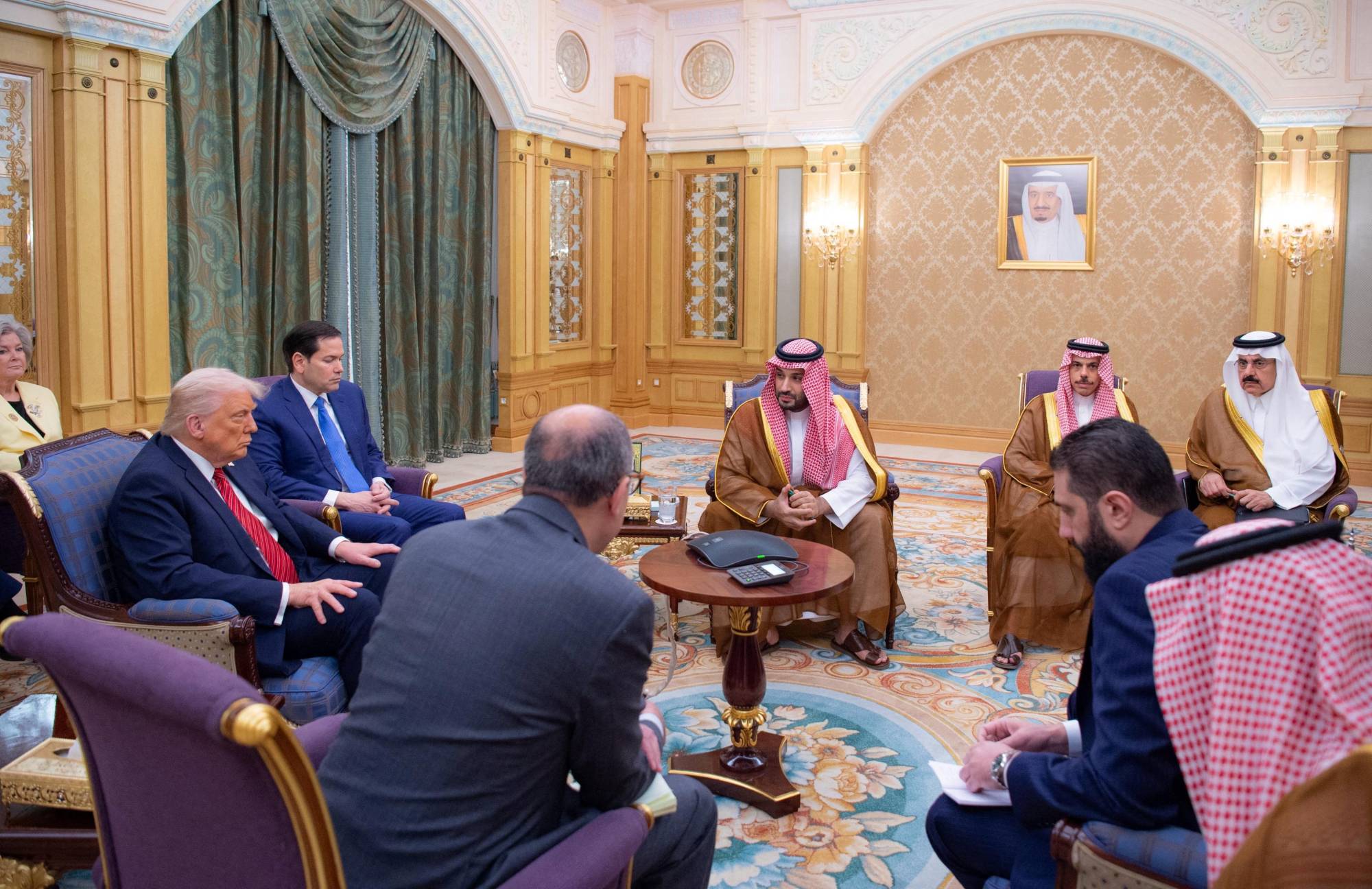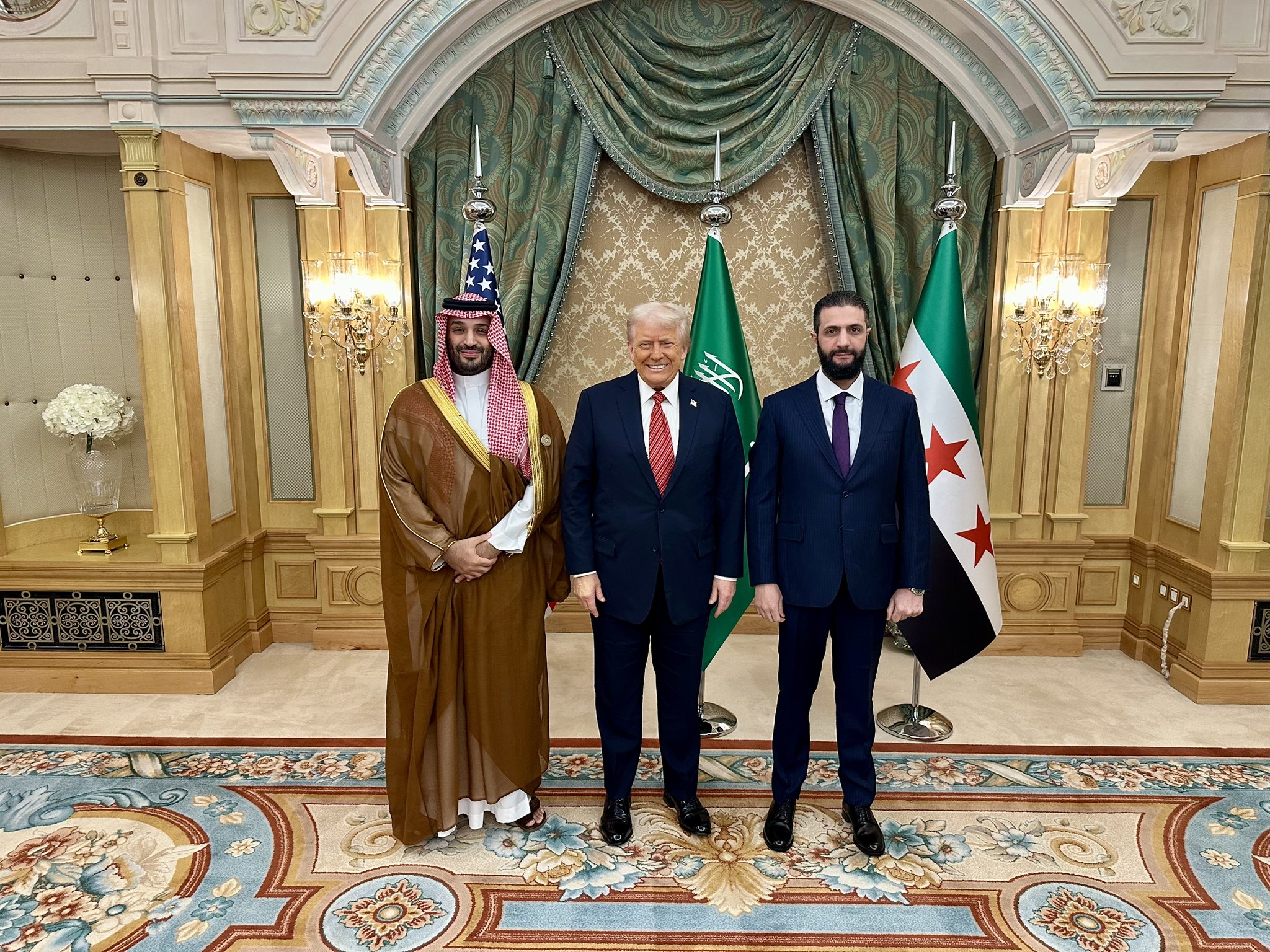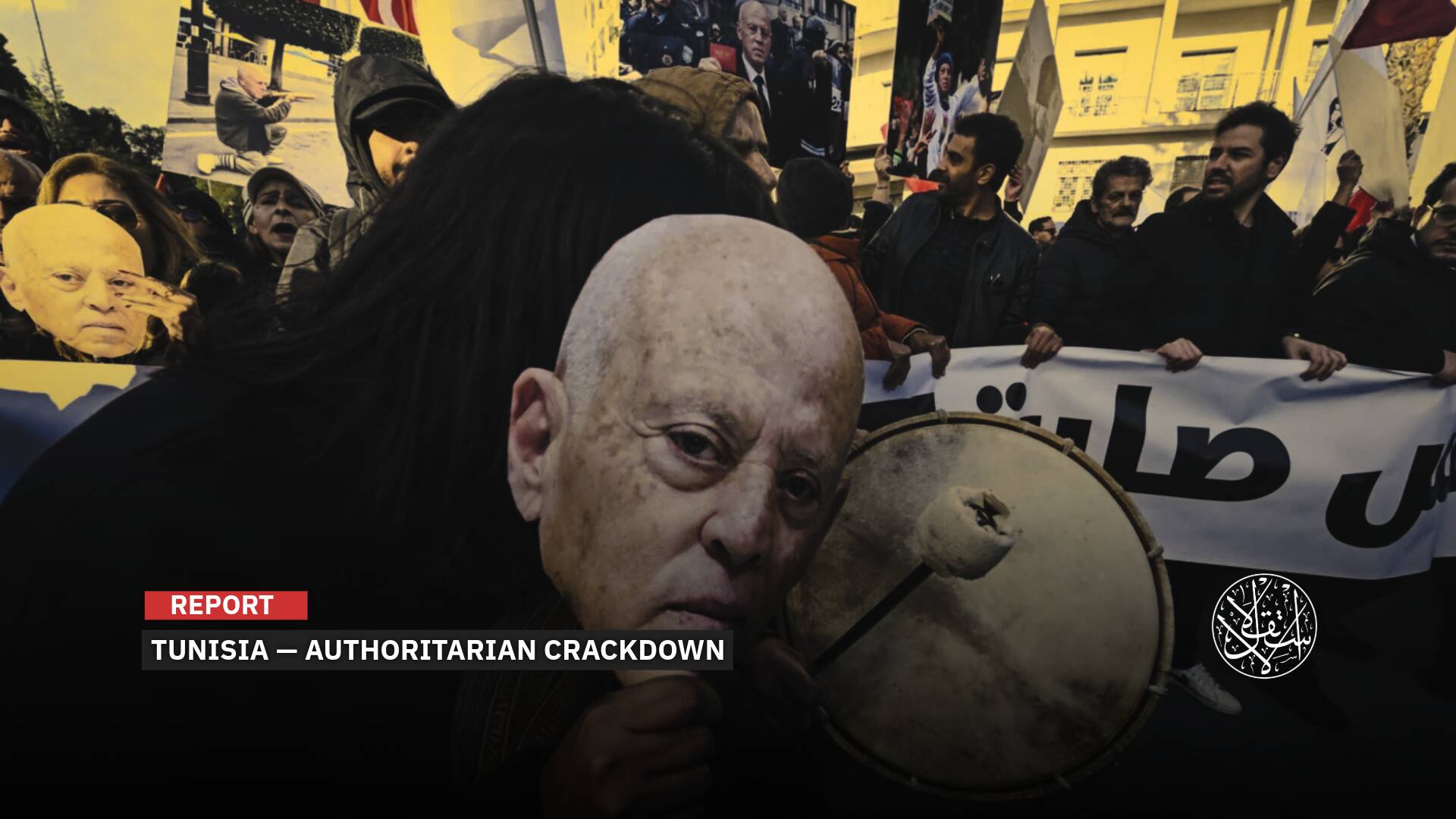Amid Israeli Concerns: What Are the Implications of Trump Lifting US Sanctions on Syria?

“Trump’s meeting with al-Sharaa was the first meeting between a US and Syrian leader in a quarter century.”
In a surprising development that represents a radical shift in US foreign policy toward Syria, the administration of President Donald Trump announced its intention to issue waivers from sanctions imposed on Damascus, a move described as aimed at advancing the peace and reconstruction process.
This came during a meeting between Trump and Syrian President Ahmed al-Sharaa in the Saudi capital, Riyadh, on May 14, in a scene that symbolized the beginning of a new chapter in the tense relations between the two countries.
The US move comes after the UK and the EU lifted some, but not all, of their sanctions on Syria earlier this year.
From 1979 to 2010, Syria was subjected to several US and European sanctions on a number of charges.
However, in 2011, due to the Assad regime's violations against Syrian political opponents, the U.S., the EU, the UK and Canada imposed additional sanctions against Damascus, most notably the Caesar Act in 2019 and the Anti-Captagon Act in 2022.
US Sanctions
As it entered its sixth month of control over Damascus, the new Syrian administration had a historic opportunity: its president, Ahmed al-Sharaa, met directly with US President Donald Trump.
Trump's meeting with al-Sharaa was the first meeting between a US and Syrian leader in a quarter century.
During the Saudi-US Investment Forum on May 13, Trump announced the lifting of sanctions on Syria.
However, this decision was not isolated from a series of political and security demands made by Washington earlier.
Trump emphasized that Syria had suffered enough, expressing his hope that this step would open the door to stability in the country.
He also indicated that the US administration was considering the possibility of completely rescinding the Caesar Act if progress on the political and security fronts continued.
For his part, Syrian President Ahmed al-Sharaa welcomed Washington's decision to lift sanctions, considering it a true start for Syria's modern renaissance.
He emphasized that his country had entered a new phase of work and construction.
Previously, al-Sharaa presented several ideas to strengthen relations between Syria and the U.S., including the construction of a Trump Tower in the capital, Damascus.
He also expressed openness to achieving a breakthrough with “Israel” and called on American companies to invest in Syrian oil and gas.
Lifting US sanctions would be a tremendous political and economic gain for Syria, which has been exhausted by 14 years of war, but it would not come without a price.
The U.S. has been clear in recent weeks in outlining the conditions that the new Syrian administration must meet.
According to a statement issued by US State Department Spokesperson Tammy Bruce, Trump and al-Sharaa discussed ways to end Iranian influence in Syria, enhance cooperation on the issue of missing Americans, and support normalization with “Israel”.
Washington also demanded that Damascus cooperate on the counter-terrorism issue, including preventing the resurgence of ISIS, overseeing detention centers for its fighters, addressing the issue of foreign fighters in the ranks of the New Syrian Army, and expelling Palestinian groups.

Subsequently, sharp questions were raised about how the new Syrian authorities would deal with these complex demands in order to escape the US sanctions umbrella.
The US president's apparent enthusiasm for lifting sanctions represents an unprecedented strategic opportunity for Syria to conclude swift deals that bypass the complex bureaucratic processes between the US administration and Congress. However, this does not mean that fulfilling all US conditions will be easy.
In the next phase, the Syrian President must work to meet Trump's list of demands. Observers believe that the success of this mission will depend on the United States' realism and whether it will accept tangible gains or insist on unreasonable demands.
In turn, US Treasury Secretary Scott Bessent announced the initiation of gradual steps to lift sanctions imposed on Syria over the coming weeks.
In a post on X, he said, “The Treasury Department will ease restrictions on energy, transportation, and financial transactions, while maintaining targeted sanctions against individuals and entities linked to previous violations.”
For his part, Secretary of State Marco Rubio stated that Washington would grant waivers from the sanctions as an initial legal measure, noting that the waivers must be renewed every 180 days.
He emphasized that rescinding the sanctions law requires further progress, and that investing in Syria remains risky as long as there is a possibility of sanctions being reinstated at any time.
He explained that the planned waivers will cover vital economic sectors to facilitate reconstruction, noting that this step comes in response to pressure from Congress and international partners.
It's worth noting that US sanctions are divided into three categories: executive orders issued by the president, sanctions issued by Congress—such as the Caesar Act—and the national emergency, which was extended more than a week ago. Therefore, only the executive orders (eight in number) will be lifted at this time.

Shock and Doubts
The American website Axios reported that Israeli Prime Minister Benjamin Netanyahu asked US President Donald Trump not to lift sanctions on Syria.
Israeli officials quoted Netanyahu as saying that he used his meeting with Trump at the White House last month to ask him not to lift sanctions on Syria and expressed his concern about Turkiye's role in Syria.
However, Trump ignored Netanyahu's position. Axios quoted a source as saying that the Trump administration had not informed Israel in advance of Trump's decision to hold a meeting with the Syrian president or to lift US sanctions on Syria.
This comes as Israeli officials continue to describe the Syrian President as a jihadist in suit, despite his severing ties with al-Qaeda in 2016.
Israeli officials have warned that the new Syrian president is misleading the West and have spoken of the negative consequences of lifting sanctions on Syria.
According to Maj.-Gen. (res.) Tamir Hayman, director of the Institute for National Security Studies at Tel Aviv University, Trump's move to lift all sanctions surprised Israel fundamentally.
Hayman told Israel’s Army Radio on Wednesday that “Israel had hoped that Washington would move towards a gradual outline of partial lifting of sanctions while ensuring that the regime does not become Islamist-jihadist.”
Carmit Valensi and Amal Hayek, researchers at INSS, wrote that “Trump’s actions vis-a-vis Syria show the increased weight given to Turkey and Syria in designing the regional order.”
But Trump did not change his approach by giving al-Sharaa a chance to prove his intentions. He told Netanyahu that he did not see the new administration in Damascus as hostile to Israel or the West, but rather that it was sending positive messages.
On the other hand, CBS News quoted informed sources as saying that within the Treasury Department, which is responsible for managing and implementing sanctions policy, Trump's announcement was met with shock among senior officials.
Four US officials familiar with the matter said that senior officials at the State and Treasury departments scrambled to understand which measures would be rolled back and at what pace, especially since some of them have been in place for decades.
A senior US official explained to Reuters that the White House had not issued any memo or directive to sanctions officials at the State or Treasury Departments to prepare for the repeal of the sanctions, nor had it alerted them to the imminent announcement.
Republican Sen. Lindsey Graham, a close Trump ally, offered a more reserved response, saying: “We must remember that the current leadership in Syria achieved its position through force of arms, not through the will of its people.”

Political Signal
In addition to its economic repercussions, the lifting of US sanctions on Syria sends a very important political signal, meaning that everyone can work with the new Syrian administration.
In the short term, according to experts, the decision to lift sanctions allows aid workers and international organizations to expand their activities inside Syria without fear of secondary sanctions.
The decision will also have positive effects in terms of improving business activity, attracting investors, and reducing the deterioration of the Syrian pound’s exchange rate.
It will also provide job opportunities in a country where more than 90% of the population lives below the poverty line.
Lifting sanctions is expected to improve Syrians' access to medicines and medical equipment, as the health sector, in particular, has been severely affected by the difficulty of importing advanced equipment and medicines under sanctions.
An improved economic environment and the commencement of reconstruction projects may encourage some refugees to return to their areas if decent living opportunities are available, potentially easing the burden on neighboring countries hosting millions of refugees.
However, experts warn that the humanitarian crisis will not be resolved quickly simply by lifting sanctions.
They point out that it is the result of massive destruction of infrastructure and services, and overcoming it requires a comprehensive plan for reconstruction and sustainable development.

In turn, political analyst Ibrahim Khatib told Al-Estiklal that “Syria's handling of these American demands will be a test of national decision-making sovereignty and political independence, at a time when the new regime is seeking to reshape its foreign relations.”
He also indicated that “Syria is not planning to sign a comprehensive peace agreement with Israel, but may engage in partial understandings, such as agreements on respecting demarcation lines.”










